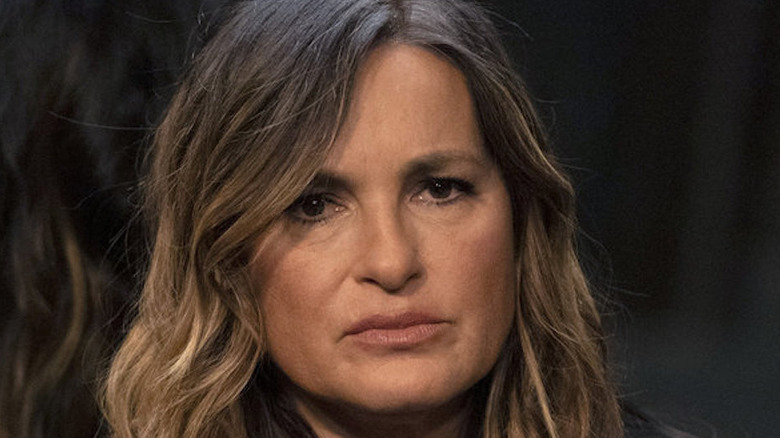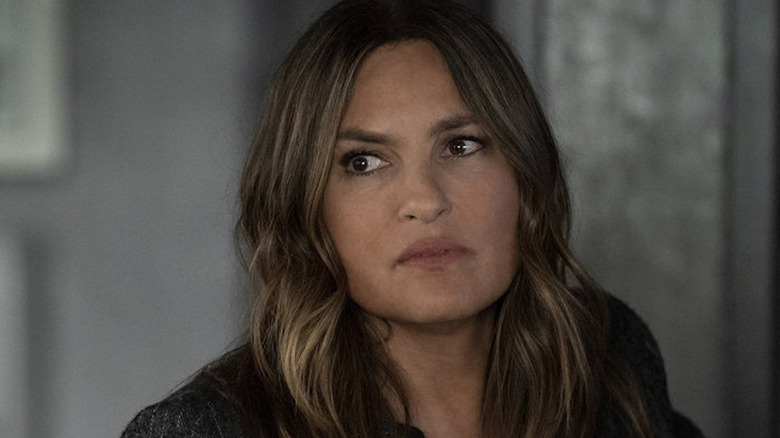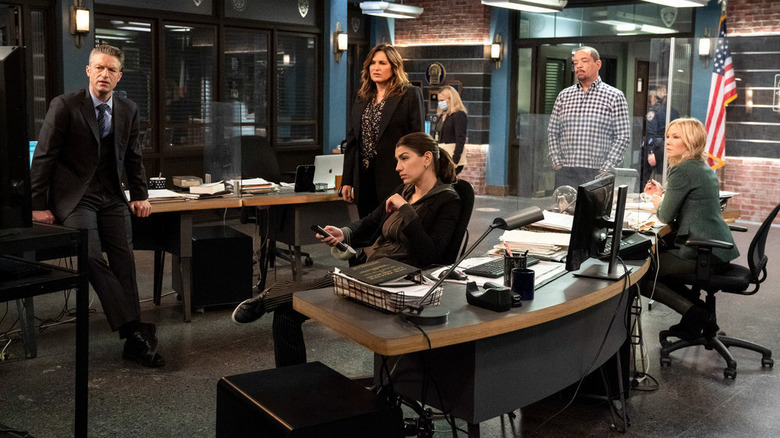The Positive Effect That Law And Order: SVU Has On Viewers
Now in its twenty-third season and on the other side of its 500th episode, Dick Wolf's occasionally controversial, always topical "Law & Order: Special Victims Unit" has long been at the center of the public discourse regarding television depictions of rape, sexual assault, and the justice system. In that time, the series has undoubtedly had a significant impact on its long-time lead Mariska Hargitay, who founded the Joyful Heart Foundation — a nonprofit organization that supports survivors of sexual and domestic abuse — in 2004.
A trained rape counselor, the Emmy-award winning actress, who plays Captain Olivia Benson on the show, has even testified before Congress regarding the need to address the country's backlog of unanalyzed rape kits, which she calls "a crystal clear microcosm of what is wrong with our society" (via People). But in recent years, researchers have set to work attempting to discover how shows like "Law & Order: SVU" have impacted audiences and how that impact might affect society's understanding of (and attitude toward) sexual assault and rape, as well as the dangerous mythology surrounding such crimes.
Law & Order: SVU has changed some viewers
In an Atlantic article titled "Law & Order: PSA," Sophie Gilbert discussed a 2015 Washington State University study published in The Journal of Health and Communication that suggests viewers of the series have a "lower rape myth acceptance." Additionally, the study found that viewers are more intent on seeking "consent for sexual activity" and "(refusing) unwanted sexual activity" and that those surveyed had "greater intentions to adhere to decisions related to sexual consent."
Notably, the study suggested just the opposite for viewers of Anthony E. Zuiker's "CSI: Crime Scene Investigation." Based on their findings, researchers concluded that the long-running CBS series was "associated with decreased intentions to seek consent and decreased intentions to adhere to expressions of sexual consent." Of course, like any study involving surveying people, there are some complex issues to consider.
As Gilbert reports, the study's authors "acknowledge that causality is hard to infer," as there is always the question of which came first — the chicken or the egg. Are "Law & Order: SVU" fans more educated about the importance of consent and the toxicity of rape mythology, or are those who are more educated about the importance of consent and the toxicity of rape mythology simply more likely to watch a series that consistently foregrounds these issues? What's more, the survey was comprised of just three hundred-and-thirteen college freshmen, a relatively small sample size, and a narrow demographic when one considers the massive viewership of such series.
Law & Order: SVU has made an impact
Despite its inevitable issues, the study ultimately concluded that "exposure to the 'Law & Order' franchise is associated with decreased rape myth acceptance and increased intentions to adhere to expressions of sexual consent and refuse unwanted sexual activity." In contrast, "exposure to the 'CSI' franchise is associated with decreased intentions to seek consent and decreased intentions to adhere to expressions of sexual consent" (via the Journal of Health Communication). The authors theorized that this differentiation was due to the former's "conscientious efforts to not glamorize rape and to portray punishment of the crime." The findings add further credence to a 2006 study (also mentioned by Gilbert) performed at the University of California, Santa Barbara, which concluded that — after viewing a tv movie depicting acquaintance rape — those surveyed demonstrated an "increased awareness of date rape as a social problem" (via Research Gate).
While there's still much to investigate when it comes to television's impact on society, these studies at least suggest that a delicate and thorough treatment of this specific kind of violence. As "SVU" has demonstrated, particularly in recent seasons — it may assist in moving attitudes and understanding forward, which could lead to an increase in prevention.
If you or anyone you know has been a victim of sexual assault, help is available. Visit the Rape, Abuse & Incest National Network website or contact RAINN's National Helpline at 1-800-656-HOPE (4673).


